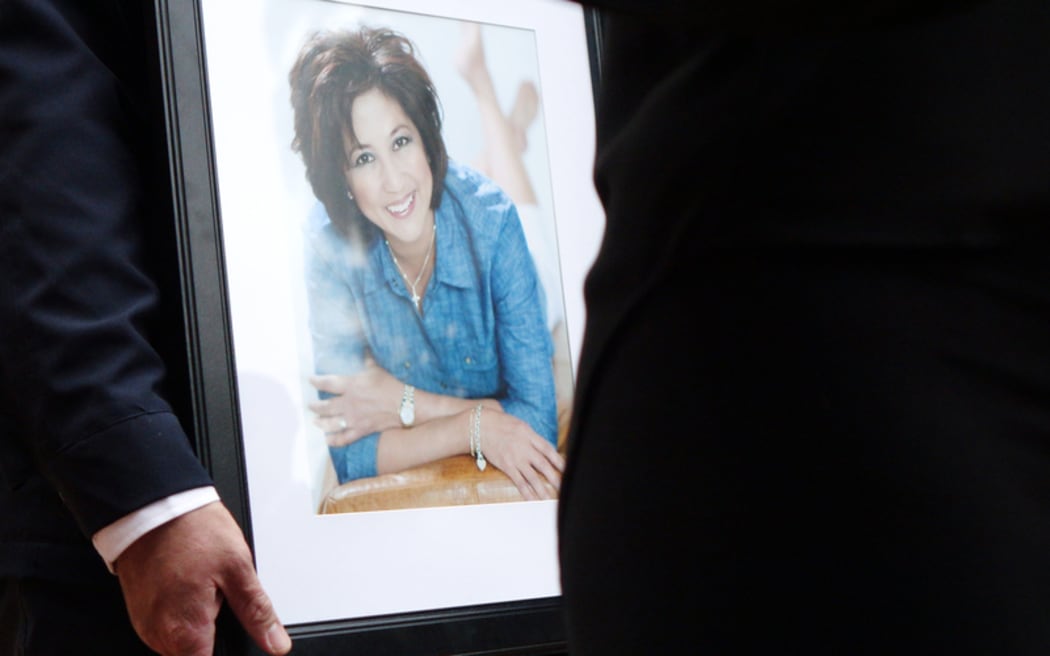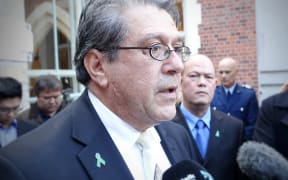The man convicted of murdering Blessie Gotingco has no basis for his claim police conspired to ensure he was found guilty, the Crown says.

Photo: RNZ
Tony Robertson is representing himself at a Court of Appeal hearing in Wellington, where he is asking for his conviction to be overturned.
He was jailed for life and ordered to serve at least 24 years in prison for the murder of the North Shore mother-of-three in May 2014; Robertson intentionally drove his car into her as she walked home from the bus.
He then bundled her into the back seat of his car, and drove her home to his garage where he raped, stabbed and strangled her before dumping her body in bush behind a cemetery.
Members of Mrs Gotingco's family have travelled from Auckland and overseas to attend the hearing.
Mrs Gotingco had stab wounds to her back which Robertson today claimed would have been impossible for him to inflict as she would have been unable to roll on to her stomach due to her injuries.
Robertson said he believed the police inflicted those stab wounds on Mrs Gotingco's body to show she was moving around at the time she died.
When her body was examined at an Auckland Cemetery where it had been discovered, there was no mention of stab wounds to her back, Robertson told the court.

Family hold a picture of Blessie Gotingco outside court after the guilty verdicts last month. Photo: RNZ / Kim Baker Wilson
However, Crown lawyer Mark Lillico said there was no evidential foundation for that suggestion.
He said the idea police might have stabbed Mrs Gotingco was at odds with Robertson's own evidence, in which he admitted using a knife on her.
Robertson also said today trial judge Justice Brewer was wrong in his summing up to the jury.
He said the judge told the jury they had to be sure he had killed Mrs Gotingco by inflicting knife wounds, when the pathologist's evidence was he could not exactly say what caused the death or what time it occurred.
Robertson said the pathologist used words such as "likely, probably, I guess" when speaking of the stab wounds, but those words would not meet the high standard of proof required.
But Mr Lillico said the judge's direction was correct.
He said the pathologist's evidence was that, even if untreated, Mrs Gotingco could have survived the crash injuries for several days and it was the slitting of her throat which hastened her death.
As well Robertson failed to seek help for Mrs Gotingco after running her down.
A crash analyst had found no sign of skidding on the road, which pointed towards Robertson's car colliding with Mrs Gotingco on the grass verge, Mr Lillico said.
For Robertson to commit such serious offending while on electronic monitoring for previous serious offending showed a contempt for the court and also reflected his pronounced risk to the public, he said.
Robertson was sentenced to life in prison last August, and was also sentenced to preventive detention for rape, which means he will be released only when he is no longer considered a risk to the community.
The Court of Appeal reserved its decision.



